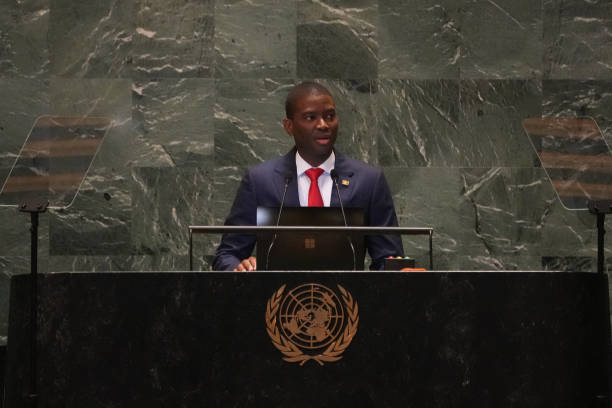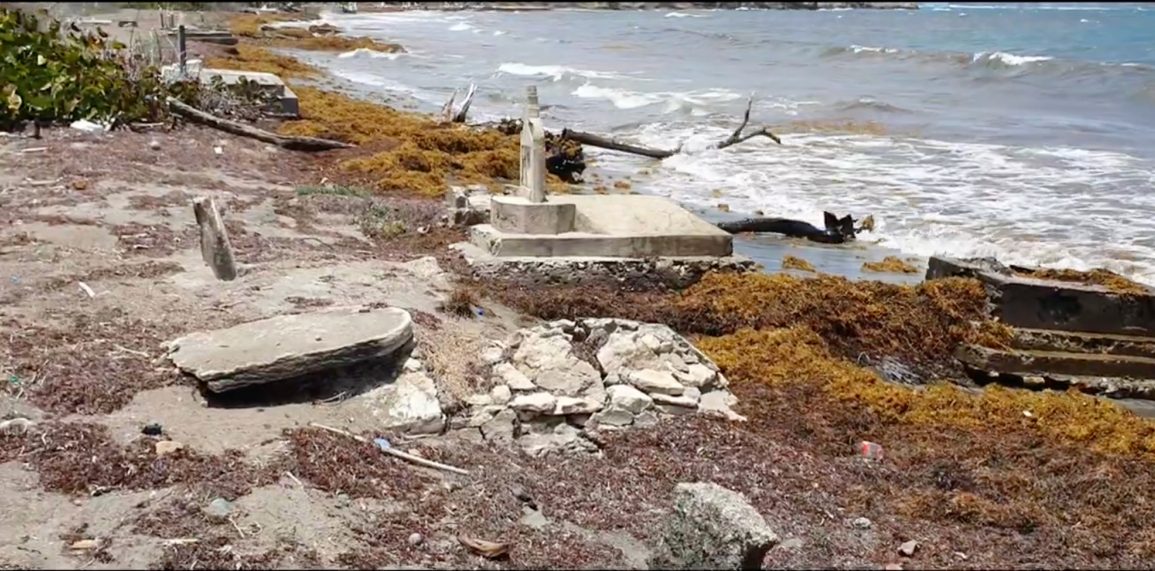As sea levels rise, a haunting scene unfolds on the Caribbean island of Carriacou in Grenada.
The Tibeau cemetery, which holds the remains of generations of ancestors, is slowly sinking into the ocean, displacing tombstones, wreaths, and even human remains.
Some of these are washed up on the island’s beaches, turning the once beautiful shoreline into a grim graveyard.
Grenada’s Prime Minister, Dickon Mitchell, calls this tragic loss a stark example of the deep impacts of climate change.
“Even the dead are now victims of climatic changes,” Mitchell said, underscoring the spiritual and emotional distress this situation brings to families.
The disruption of ancestral graves is not only a physical destruction of heritage but a profound cultural trauma for the people of Grenada.
This grim reality is at the heart of the Caribbean’s appeal to the International Court of Justice (ICJ) for climate justice.
A case currently under review by the ICJ seeks to clarify the responsibilities of countries for the environmental damage they have caused, and whether they should be held accountable for the losses faced by vulnerable nations like Grenada.

The legal battle has garnered attention globally, with 91 written submissions being considered during the oral hearings this week.
For Grenada and other Caribbean nations, the fight is not only about physical devastation but about the future of their existence.
With hurricanes such as Beryl devastating islands, the damage has been catastrophic.
Grenada’s call for substantial financial aid to rebuild mirrors the demands for climate justice. “Our very way of life, our culture, our livelihoods are at stake,” said Mitchell.
The prime minister criticized the limited financial pledges made by developed nations at COP29, emphasizing the need for more direct support to vulnerable countries battling climate breakdown.
As the Caribbean continues to bear the brunt of climate change, the region’s leaders are pushing for a clear legal framework to ensure accountability for those most responsible for global environmental damage.

